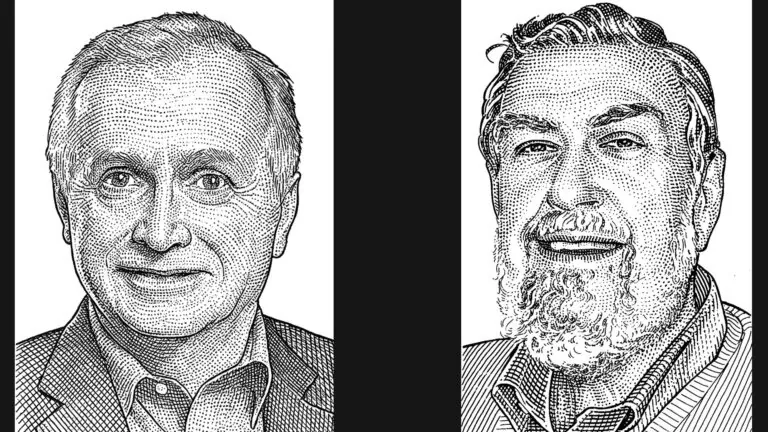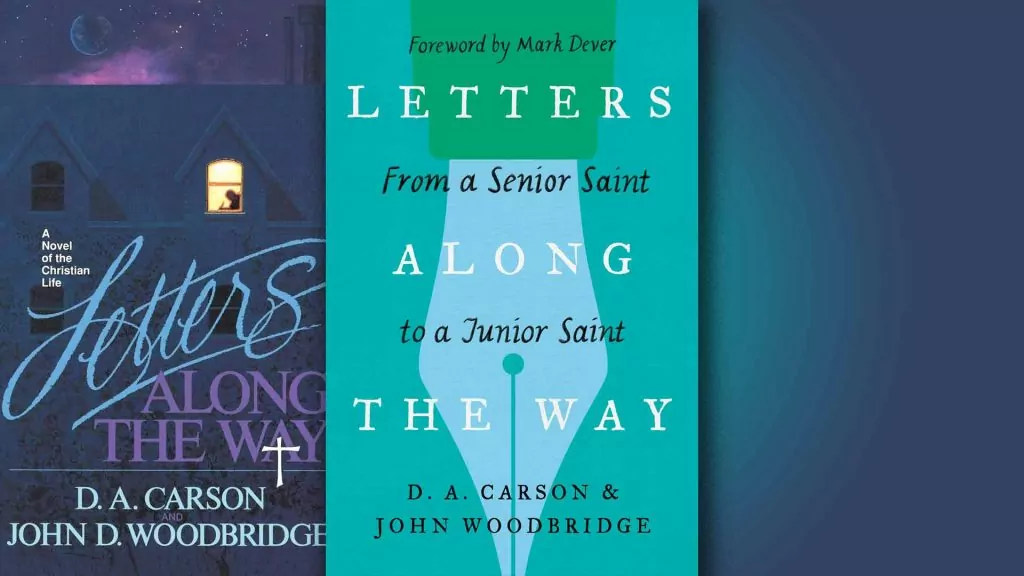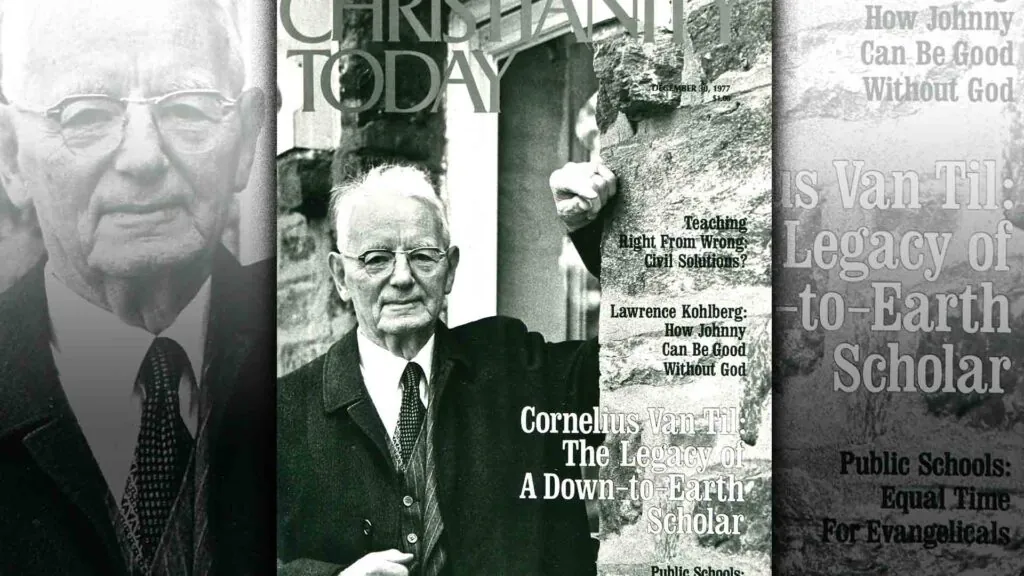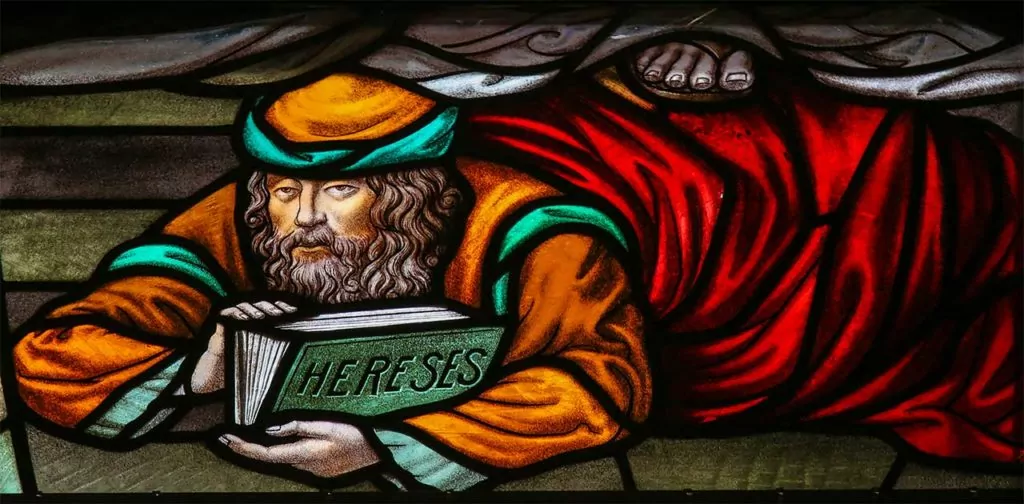It’s no secret that I love books. Here in my study I often feel like I’m surrounded by good friends. Some are old friends, centuries old, but the two I’d like to introduce you to in this article are still writing today. The aim of this brief introduction is to help you find good friends for yourself — in other words, to find edifying reading that will give you a better understanding of the Christian faith, a greater grasp of the gospel, and a deeper love for Christ.
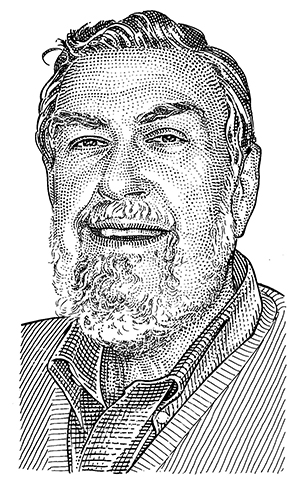 Jay Adams (1929-2020)
Jay Adams (1929-2020)
What does Jay Adams have in common with the Puritans? I mean, besides many theological commonalities? Both are objects of intense prejudice. Everybody knows that Jay Adams and his counseling methodology is bad, but very few people have actually read anything by Jay Adams. In the Canadian Reformed community, the source of this deep antipathy for Adams can be traced back to a 1977 article in Clarion by Dutch theologian C. Trimp. The article (originally a lecture he delivered at our seminary here in Hamilton), while expressing some appreciation, generally took Adams apart. Trimp’s critique would be echoed by CanRC leaders for years to come. However, what Trimp wrote was based on just one early book of Adams (Competent to Counsel) and, in the meantime, Adams had written several more books. In some of those books, he explained himself further and negated many of the criticisms that Trimp offered. I began reading Adams in university and was immediately impressed by his deep commitment to Scripture and the Reformed faith.
Jay Adams is the author of more than 100 books and remains an in-demand lecturer. He did his seminary training at Reformed Episcopal Seminary and completed a Ph.D. at the University of Missouri. From 1963-1983, he taught at Westminster Theological Seminary in Philadelphia. Prior to that, he pastored a number of Presbyterian churches, including an Orthodox Presbyterian congregation. The Associate Reformed Presbyterian Church currently holds his ministerial credentials. He was the founder of the Christian Counseling and Educational Foundation (CCEF.org) as well as the National Association of Nouthetic Counselors (now called the Association of Certified Biblical Counselors – see BiblicalCounseling.com). He’s currently involved with the Institute for Nouthetic Studies (Nouthetic.org).
Why is Jay Adams important?
Jay Adams is important for precisely the same reason I first appreciated Adams back in university: he takes the Bible seriously. He writes on a variety of subjects, from Christian living to counseling to preaching, but whatever the topic, sola Scriptura is his touchstone. You may not always agree with his conclusions, but you have to agree that this is the right approach. Basically, Adams takes the presuppositional approach of Cornelius Van Til and applies it to pastoral theology. I’ve read about a dozen of Adams’ books and have learned a lot from them.
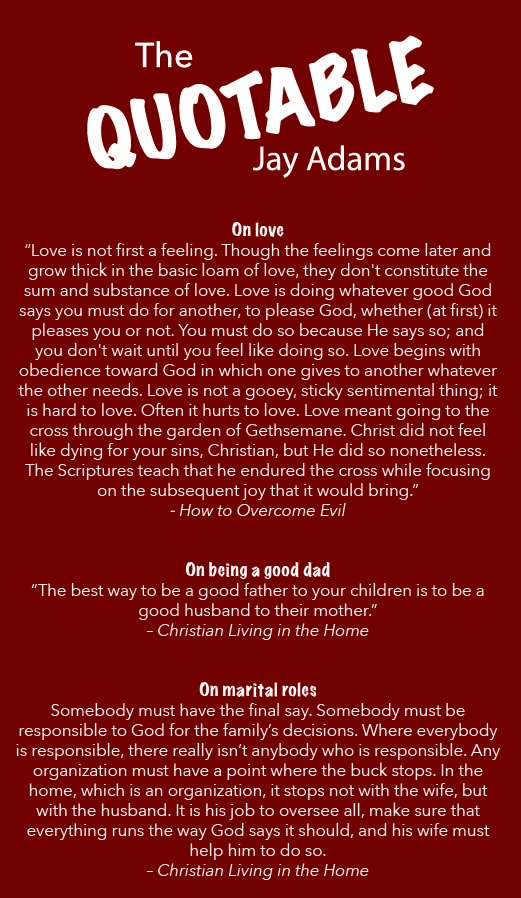 Where do I start?
Where do I start?
As mentioned, Competent to Counsel was one of Adam’s earliest books, published in 1970. It’s an important book, but it does leave a lot of questions hanging.
If you’re interested in Adam’s counseling methodology, a better place to start would be A Theology of Christian Counseling: More Than Redemption. A good follow-up would be How to Help People Change: The Four-Step Biblical Process. A couple of other books that are more directed to the regular “person in the pew”: What To Do on Thursday: A Layman’s Guide to the Practical Use of the Scriptures and The Biblical View of Self-Esteem, Self-Love, Self-Image. Preachers and aspiring preachers need to read his Truth Applied: Application in Preaching.
What to watch out for?
Adams is a controversial figure. On a formal level, some people have a difficult time getting past Adams’ tone and style. For some, he’s too strident, too forceful, too critical, or too this or that. Theologically, questions have sometimes been raised about Adam’s concept of habituation. George M. Schwab wrote an article in the Winter 2003 Journal of Biblical Counseling (published by CCEF) alleging that Adams was more influenced by O. Hobart Mowrer and William Glasser than by Scripture on this point. When someone has written as much as Adams, you can expect that there will be disagreements and critiques.
Meanwhile, another generation of counselors has arisen and some of these (esp. at CCEF) have modified Adams’ approach in what may be described as a kinder and gentler direction.
And while this is not a serious theological faux pas, if I remember correctly, Adams is also postmillennial in his eschatology.
Conclusion
Writing about Jay Adams in a positive way is a risky endeavor. For every positive point that one might rise, there will be a host of people who raise the negatives. Adams is not infallible, but he does respect the infallible Bible and he is Reformed in his convictions. I know that my life and ministry have certainly been enriched by his writings. Perhaps he has something to offer you too.
By the way Jay Adams blogs at nouthetic.org/blog.
 D. A. Carson (1946- )
D. A. Carson (1946- )
Donald Carson has a Canadian connection, being born in Montreal in 1946. His father was a Baptist pastor and missionary, first among English-speaking Quebeckers, then among the French. For Don Carson, one of the results is bilingual fluency. He did his undergrad studies at McGill University in Montreal, and then obtained a Master of Divinity degree from Central Baptist Seminary in Toronto. Carson was ordained in 1972 at a Baptist church in Richmond, BC. He then went on to obtain a Ph.D. in New Testament studies at Cambridge.
After some years as a professor at a Baptist seminary in Vancouver, he moved to Wheaton, Illinois, to take up a position teaching New Testament at Trinity Evangelical Divinity School. He’s still there today. He’s written numerous books and articles. He frequently speaks at conferences and is actively involved with The Gospel Coalition.
Why is D. A. Carson important?
Carson has three endearing qualities.
First, he is a New Testament scholar with a high view of the Bible. He believes fervently in biblical inspiration and inerrancy. Unfortunately, there are not many high-level NT scholars with such views of their subject matter.
Second, Don Carson loves the gospel. This is reflected in his work with the Gospel Coalition and Together for the Gospel. His passion for the good news also surfaces in just about everything he writes.
Third, Carson, like Mike Horton, is able to produce both high-quality scholarly writing and popular works that will edify any Christian.
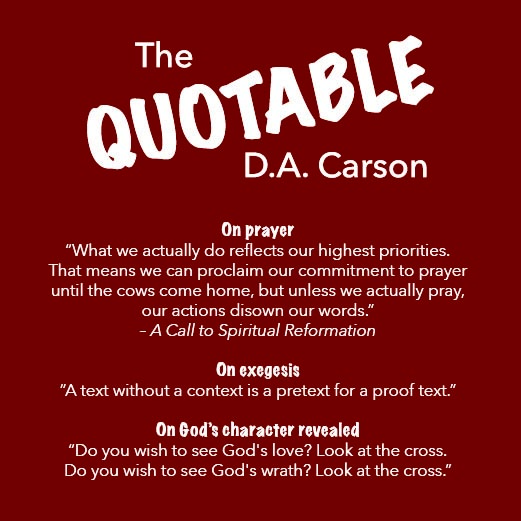 Where do I start?
Where do I start?
If you’re looking for something to whet your appetite, the best place to start is Carson’s biography of his dad, Memoirs of an Ordinary Pastor (which can be downloaded for free at The Gospel Coalition).
Then ease into Carson’s biblical scholarship with his helpful little volume, The Difficult Doctrine of the Love of God. If it’s devotional reading that you’re looking for, check out his Scandalous: The Cross and Resurrection of Jesus. If you’re a seminary student, or if you’re a pastor and haven’t read it yet, Exegetical Fallacies is a must-read. If you have an interest in postmodernism and hermeneutics, The Gagging of God is a thorough treatment.
What to watch out for?
Well, if you haven’t guessed it already, Carson is a Baptist. I don’t view the denial of infant baptism as a minor, insignificant matter. However, honestly I don’t recall reading anything from Carson that has ever leapt out at me as being distinctly Baptist. It’s not as if he makes a point of arguing for believers’ baptism in each of his books, or even laying the foundation for that position. I think his purposes are higher.
Another point worth mentioning is that Carson is not a cessationist — he believes that charismatic gifts did not cease with the time of the apostles. But again, this is not a strong theme tainting his writings. With regards to the doctrine of salvation (soteriology), Carson is Calvinistic. He holds to the doctrines of grace. Moreover, he frequently refers to the importance of confessional Christianity. He doesn’t mean that as a reference necessarily to the Three Forms of Unity or Westminster Standards, but to the kind of Christianity that grounds itself in confessions generally oriented to the Protestant Reformation. Though I don’t care for the expression myself, some would call him a “Reformed Baptist.”
Conclusion
I heard Don Carson speak a few years ago at the Canadian Gospel Coalition Conference just a few streets over from us here in Hamilton. I was impressed. He writes well, but speaks even better. Pretty much anything that Carson writes, I’ll read. If he’s speaking nearby, I’ll be there. I guarantee that this friend will edify you as well.
Dr. Bredenhof is the author of many books including God Did Say! which is available at here.







